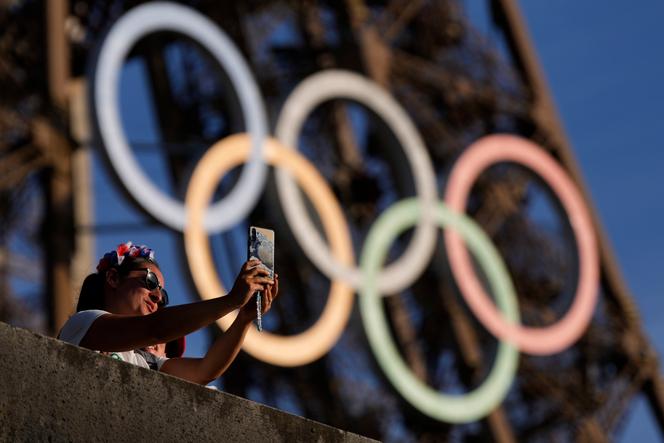


Are the happy days back? Whatever the crankiness of the extremes, the Olympic Games in Paris have just offered the French a sense of patriotic fraternity that we thought had been definitively buried under the rubble of the shattered Republic.
The taste for shared effort, solidarity in performance, festive communion, the joy of being and winning together – these are all values we thought had disappeared since the years of crisis, since the Yellow Vest movement, Covid-19, the fallout from the war in Ukraine and the brutalization of a political scene more fractured than ever. And now, through the magic of sport and the talent of athletes, all the mental barriers that the engineers of declinism and division have been striving to erect for decades have collapsed in a matter of days like houses of cards. And so it was that our athletes, many of them of mixed blood, multiplied their sporting exploits, medals and declarations of love for their one and only homeland, France.
If we are to draw any political lessons from these happy days of Olympism, it is first and foremost this patriotic resurgence that should be emphasized, on the part of the athletes as well as their supporters, fraternally united in celebrating their heroes, draped in the French flag, to the sound of "La Marseillaise" bursting from 1,000 flaming chests.
There was no contradiction, no tension, between the chauvinistic encouragement of our athletes and the celebration of others from all over the world. The nationalism of the French supporters was one of openness, fraternity and inclusion, the antithesis of the closed, exclusionary nationalism that the far right has cultivated since the end of the 19th century. A good slap in the face to those who claim a monopoly on patriotism, reserving it a priori for those of French origin, as well as to those who reject it in essence, in the name of proletarian internationalism.
We can already hear those in the small world of politics and the media eagerly awaiting the return of our internecine wars, our social fractures and our postures of conflictuality. They'll soon be able to rejoice, we have no doubt, for happy days are fleeting. The Fête de la Fédération of July 14, 1790, the matrix of these moments of celebration of unity and hope, gave way to bloody clashes between monarchists and patriots even before Louis XVI had betrayed the Revolution. Yes, of course, the feeling of patriotic unity and festive hope quickly faded from the public scene, as was always the case in the aftermath of those periods of collective euphoria that characterize happy days.
You have 51.14% of this article left to read. The rest is for subscribers only.
